Speakers and Chairs:
Abstracts & Biographies
Wednesday, 27th March 2019
Welcoming Addresses
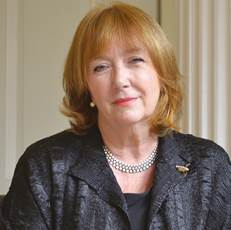
The Rt Hon Baroness Symons of Vernham Dean
The Rt Hon Baroness Symons of Vernham Dean, PC, is a senior Labour member of the House of Lords and a former Deputy Leader of the House of Lords. From 19997 until she stepped down from government in 2005, Baroness Symons served consecutively as Minister for the Middle East, Minister for International Trade, Minister for Defence Procurement, and the Prime Minister’s Envoy to the Gulf.
As well as being Chairman of the British Egyptian Society, Baroness Symons is Chairman of the Arab British Chamber of Commerce, co-Chairman of the Saudi-British Joint Business Council, President of the British Exporters’ Association and is she is also on the Board of Trustees of the British University in Egypt and on the Advisory oards of the Egyptian-British Business Council, British Expertise and the 'D' Group.

James Watt, Chair, British Council for Research in the Levant
James Watt CVO is a Partner in the political risk consultancy, the Ambassador Partnership LLP, based in London, as well as being a Trustee of the London Middle East Institute. He is also Chairman of the Council for British Research in the Levant, which enables ostdoctoral research in the humanities and social sciences, with institutes in Jerusalem and Amman. In his career in the British Diplomatic Service from 1977 to 2014 he dealt mainly with the Middle East, serving as Ambassador to Lebanon (2003-06), Jordan (2006-11) and Egypt (2011-14). He continues to write and lecture about political developments in the region.
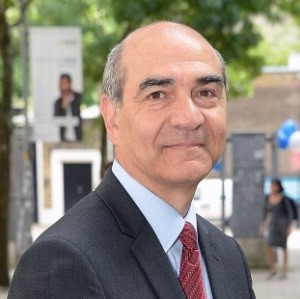
Dr Hassan Hakimian, Director, London Middle East Institute SOAS
Hassan Hakimian is Director of the London Middle East Institute and a Reader in the Economics Department at SOAS, University of London. Dr Hakimian's research focuses on the MENA economies, specifically human resources and demographic change, labour markets, inclusive growth and the economics of Arab uprisings. He is the author of Labour Transfer and Economic Development (1990), co-editor with Ziba Moshaver of The State and Global Change (2000), with Jeff Nugent of Trade Policy and Economic Integration in MENA (2003) and with Parvin Alizadeh of Iran and the Global Economy: Petro Populism, Islam and Economic Sanctions (2014). Dr Hakimian is a founding member and currently the President of the International Iranian Economic Association (IIEA) and a Research Fellow and member of the Advisory Committee of the Economic Research Forum (ERF) in Cairo. He is the founder and series editor for the Routledge Political Economy of the Middle East and North Africa series, which he launched in 2003.
Session 1: 1919 A Century Beyond: Reflections on Egyptian Politics

Chair: Professor Magdy Ishak Hanna
Professor Magdy Ishak was born in Egypt in 1947 and currently lives in London. He graduated from Ain Shams Medical School in Egypt and trained as an orthopaedic and spinal surgeon the United Kingdom. During his medical career he pioneered work on lower-limb graded pressure stockings which reduce the risk of DVT and pulmonary embolism; these stockings are currently used throughout the world in all types of surgery.
Professor Ishak was instrumental in the adaptation of the ISO 9001 in healthcare accreditation and was chosen by his peers as an Honorary Companion of the Chartered Institute of Management, he teaches healthcare economics to MBA students and was made a Freeman of the City of Glasgow for his civic work. He is also a senior adjudicator in disputes between the government and private healthcare providers in the UK. Professor Ishak was one of the early participants in PPP and has three major projects with the British National Health Service, including the Neuroscience Institute at Preston University.
He is Chairman of the Egyptian Medical Society UK, Vice Chairman of the British Egyptian Society, a member of the Institute of Directors and the Advisory Council of the London Middle East Institute, SOAS University of London. A leading entrepreneur in UK healthcare he is the founder and former CEO of the Scotcare group, Crestacare PLC and the Covenant Healthcare Group. He is currently the Executive Chariman of the Optive Group.

Keynote Speaker: Professor Nabil Fahmy
Nabil Fahmy was Foreign Minister of Egypt from July 2013 to June 2014. Fahmy steered the course of Egypt’s diplomacy during a time of immense challenge. During his tenure as Minister, he formulated a strategy to reorient Egypt’s foreign policy, ensuring that Egypt had numerous foreign-policy options both regionally and globally, while also restructuring the Egyptian Foreign Ministry in order to address the future challenges confronting Egypt. After his tenure as Minister, Fahmy resumed his position as Dean of the School of Global Affairs and Public Policy at the American University in Cairo (AUC). Before that Fahmy had served as Egypt’s Ambassador to Japan from 1997 to 1999 and to the USA from 1999 to 2008. During his distinguished diplomatic career, he also served in numerous government and international positions focusing his work on international and regional security, disarmament and non-proliferation, and Arab-Israeli diplomacy. He publishes frequently on these issues as well as on domestic and global governance. He earned his Bachelor’s degree in Physics/Mathematics in 1974, a Master’s degree in Management in 1976, both from the American University in Cairo, and was awarded an Honorary PhD in 2009 from the Monterey Institute of International Studies, Middlebury College.
Abstract: 1919 A Century Beyond: Reflections on Egyptian Politics
The 1919 revolution initiated Egypt’s century-long call for freedom. The first of four revolutions was unique in its rejection of foreign rule, while the others stood up to domestic circumstances. Distinctively, it was led by the liberal political elite, not by grassroots freedom fighters, the military or popular movements. It is the only revolution that continues to have widespread popular support without suffering from the test of time or political revisionism. Despite its achievements and historic importance one cannot claim that it truly established a pluralistic political culture in Egypt which would sustain multiparty polity with diverse opinions.
The intermittently energised quest for freedom has been the story of Egyptian policy over the last hundred years with three more revolutions to follow. Each had its unique character and processes, with its particular achievements and failures. Egyptian polity throughout has been testimony to the ebbs and flows of societal transformation and continues in search of the threshold of social consensus that will provide not solely the nation and its organised political stakeholders but also individual with a full expression of ‘Freedom’.
Session 2: Reflections on the 1919 Independence Movement

Moderator: Sir Derek Plumbly
Sir Derek is Visiting Professor of Middle East Studies at King’s College London and Chair of the Arab British Centre. He has long experience as a diplomat and international official in the Arab world. From 2003 to 2007 he was British ambassador to Egypt, his second posting to Cairo. From 2012 to 2015 he was the UN Special Coordinator for Lebanon, where he first studied Arabic in the 1970s.

Speaker: Mounir Fakhry Abdel Nour
Mounir Abdel Nour is a senior Egyptian politician and businessman. Currently a Member of the Boards of Directors of financial and industrial companies and a Senior Adviser for a major international investment bank he was formerly Minister of Trade and Industry from July 2013 to October 2015 and from November 2012 to July 2013 Secretary General of the National Salvation Front. From February 2011 to August 2012 be was Minster of Tourism. From 2005 to 2011 he was Secretary General of the WAFD Party and from 2000 to 2005 he was a Member of Parliament and Leader of the Opposition. From 1996 to 2018 he was a member of the Higher Committee of the WAFD Party and from 2003 to 2011 he was a member of the National Council for Human Rights.
Abstract: Copts in the 1919 Revolution – an Exceptional Participation in Egyptian Political Life
The period from November 1918 to January 1924, commonly known as the 1919 Revolution, was a unique one in contemporary Egyptian history with regard to the participation of Copts in the political and public life of Egypt. During those five years, as opposed to previous and subsequent periods, Copts were omnipresent in the front lines of the political fight and street demonstrations, joining their fellow countrymen in the quest for independence. The address is a detailed description of the Coptic participation in the 1919 Revolution and an attempt to explain the reasons of this exceptional and unusual presence on the political scene of the country.
Session 3: The Great Theft of History: World War One and the Prelude to Revolution

Moderator: Roger Hardy
Roger Hardy was for more than 20 years a Middle East analyst with the BBC World Service. He is the author of The Muslim Revolt: A Journey through Political Islam (2010) and The Poisoned Well: Empire and Its Legacy in the Middle East (2016; paperback, 2018). He is an Associate Fellow at Green Templeton College, Oxford.
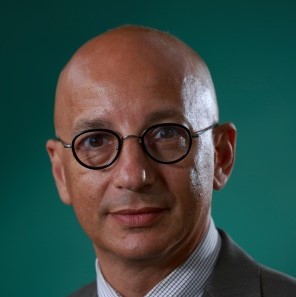
Speaker: Professor Khaled Fahmy
Khaled Fahmy is a historian of the modern Middle East, with a specialty in the social and cultural history of nineteenth-century Egypt. Born and raised in Egypt, Fahmy studied economics for his BA, and then political science for his MA, both degrees he received from the American University in Cairo (AUC). He then went to the University of Oxford where he wrote his DPhil dissertation on the history of the Egyptian army during the first half of the nineteenth century. After receiving his doctorate in 1993, Fahmy moved to the US where he worked first at Princeton University then at New York University. In 2010, Fahmy returned to Egypt where he joined his alma mater, AUC, as chair of the Department of History. In 2013, he returned to the US, this time as a visiting fellow at Columbia University, then as a visiting professor at Harvard University. He joined the University of Cambridge in 2017.
Abstract: The Great Theft of History: The First World War and the Prelude to Revolution
In 2013, the Egyptian army suddenly started a new tradition of celebrating the First World War. Over the following five years, from 2013 to 2017, lavish celebrations were held every November under the auspices of the Military Research Unit of the Egyptian Armed Forces. In these celebrations speeches were delivered celebrating what was claimed had been heroic feats of the Egyptian Armed Forces in various theatres of operation during the Great War. Given the fact that the Egyptian army was under British command during the War; that this army did not participate in the War; and that it was Egyptian peasants, not Egyptian soldiers, who assisted in their thousands in the war effort, this paper argues that behind this bizarre claim is an attempt to distort the historical record not only of Egypt in the First World War, but also of the very nature of the 1919 Revolution.
Session 4: The Strategy and Tactics of the Protests
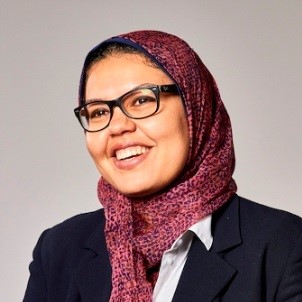
Moderator: Dr May Darwich
May Darwich is Assistant Professor in International Relations of the Middle East at Durham University, in the United Kingdom. She has extensively published on the international relations of the Middle East. She is the author of the forthcoming book Threats and Alliances in the Middle East: Saudi and Syrian Policies in a Turbulent Region (Cambridge University Press, 2019). Her current research projects focus on regional military interventions in the Middle East and the diffusion of sectarianism in unlikely places in the Middle East.
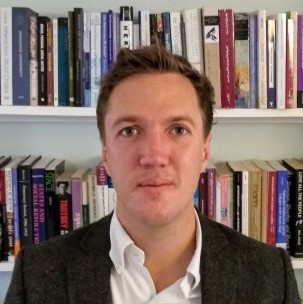
Speaker: Dr Neil Ketchley
Neil Ketchley is a lecturer in Middle East politics in the Department of Political Economy at King’s College London. His work focuses on protest and revolution in the Arabic-speaking Middle East and North Africa. His first book, Egypt in a Time of Revolution (2017 Cambridge University Press), was co-winner of the American Sociological Association’s 2018 Charles Tilly Distinguished Contribution to Scholarship Book Award. Ketchley received his PhD in Political Science from the London School of Economics. He has held research and teaching positions at the University of Oxford, the American University in Cairo and the University of North Carolina at Chapel Hill.
Abstract: Telegraphing Revolt: Protest Diffusion in the 1919 Egyptian Revolution
The outbreak of the 1919 Egyptian Revolution poses a puzzle for social science. Newspaper reports from the period mention hundreds of anti-British protests being staged across the country within days of Zaghlul’s arrest on the 8th March 1919. But during this period there were no social movements or mass-based political parties in Egypt. How did collective protest diffuse and scale up in a semi-agrarian context characterised by political disorganisation? Matching an original event catalogue derived from five contemporaneous Arabic-language newspapers and colonial security reports with census data and georeferenced maps, I trace how anti-British protest initially diffused through Egypt's communications infrastructure. Protest also diffused faster to districts with more students. These findings show how the infrastructure of colonialism could be used to orchestrate anti-colonial activism – and underscore how historical debates can be revisited by combining underutilised primary source material with newer analytical tools and methods.
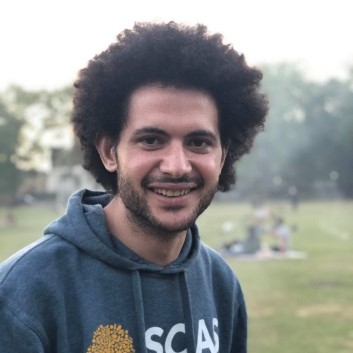
Speaker: Mohamed Elsayed
Mohamed Yehia Elsayed has recently completed an MA in History at SOAS University of London. His research interests centre upon subaltern and labour history, humanities education and memory studies in post-colonial Egypt. His ongoing PhD thesis explores the experience of Egyptian workers of Suez Canal Company in relation to urban life in the interwar period. Mohamed holds degrees in Clinical Pharmacy and Liberal Arts from the University of Suez Canal and Cairo Institute of Liberal Arts and Science. Besides his studies, he has been involved in the founding and organisation of educational initiatives with a special focus on the social sciences and humanities, and participated as a fellow researcher in E7ky Ya Tarikh (History Workshop) and CILAS. He is a co-founder in Mubtada, an initiative to introduce humanities to teenagers. Finally he co-started series of workshops entitled ‘We Will be Back Soon’ documenting the experience of the forced migration of Canal Zone inhabitants since 1967.
Abstract: Workers on the Canal, Camaraderie within Apartheid
The paper explores the coexistence of transnational ideologies such as communism, with exclusionary nationalist ideologies, and later political Islam, in the Suez Canal area in 1919. By shedding light on worker movements, the paper shows that workers transcended nationalist lines through acts of class-based solidarity such as in the Suez Company strikes of 1919. Despite this, nationalism and political Islam, rather than cosmopolitanism, found a stronghold in the area. It argues that such exclusionary ideologies were the result of lived realities in the Isthmus rather than abstract theorizing. Divided into two racially-segregated neighborhoods, of natives or Europeans, the isthmus cities became fertile ground for xenophobic ideology that highlighted the natives’ Arab Muslim identity.
Session 5: Britain and Egypt

Moderator: Sir Geoffrey Adams
Sir Geoffrey Adams has been British Ambassador to Egypt since September 2018. Sir Geoffrey joined the Diplomatic Service in 1979, and spent his early career on postings to Saudi Arabia, France and South Africa, and at the Foreign and Commonwealth Office (FCO) in London. He was posted to Cairo in 1998-2001 as Counsellor and Deputy Head of Mission. Thereafter he was Consul General in Jerusalem, Private Secretary to the Foreign Secretary and British Ambassador to Iran. Sir Geoffrey then served as Political Director General at the FCO from 2009 to 2012 and subsequently as Ambassador to the Netherlands from 2013 to 2017.

Speaker: Professor James Whidden
James Whidden is Professor of History at Acadia University. He holds a PhD from the SOAS (1998) and was educated at Dalhousie and McGill universities in Canada. He taught at Concordia, Dalhousie and Murray State University before taking up a position at Acadia in Nova Scotia, Canada. His books include Monarchy and Modernity in Egypt (IB Tauris, 2013) and Egypt: British Colony, Imperial Capital (Manchester, 2017). He has also written on French North Africa, including the memoirs of Jacques Berque. He is presently working on the diaries of Sa‘d Zaghlul.
British Responses to 1919: Reaction, Reform and Regime Restoration
The concept of ‘legal geography’ is employed to understand why the British response to political revolution was initially reactionary. The revolutionary leadership was portrayed as a radical, violent organisation run by a clique of nationalists driven by a capacity to seize and control the machinery of state, not institute a liberal democracy. Educated in the principles of liberty, so observers said, the nationalists fomented a massive movement by appealing to millenarian communal narratives. Liberal imperialists, however, appreciated the legitimacy of nationalist demands and called for imperial reform, or at least adjustments. These developments had complicated consequences for Egyptian political society, including the formation of distinctly revolutionary, conservative and liberal constitutionalist parties. British support for the liberal constitutionalists led, paradoxically, to the emergence of a conservative party that positioned itself between liberals and revolutionaries to chart a path towards the restoration of the old regime.

Speaker: Dr Richard Long
Richard Long is a Middle East linguist and historian. He studied Arabic, Persian and Turkish at Cambridge and McGill before working with the Foreign Office and the British Council in six Arab countries and Turkey. After Salman Rushdie's Satanic Verses blocked a Tehran posting, he directed Islamic and Middle East history studies at Newcastle University and at Durham for a decade. He has contributed articles, reviews and translations to many Arabic and Islamic journals and is the author of five Middle East-related books, two of them on Egypt. He now lectures on 'Britain's Moment in the Middle East'.
Abstract: ‘No Very Fixed Ideas’. The Foreign Office, the High Commissioners and the Egyptian Nationalists
Successive High Commissioners had to field Egyptian nationalist demands that, post war, Britain honour promises about their country’s independence. They failed the challenge. Like his predecessor McMahon, Wingate – starved of Foreign Office guidance and accused of inappropriately handling the nationalist leader, Sa’d Zaghlul – was removed from his post. Steps taken by Chargé d’affaires Cheetham provoked the 1919 Revolution, which Allenby, bullying London, countered by obtaining for Egypt partial ‘independence’ in 1922. Via a damaging anti-Zaghlul ultimatum, he then sidelined the nationalists, left the Sultan ruling without democratic input and terminated his diplomatic career. His two successors maintained the pattern of failure and dismissal.
Public Lecture: The Impact of Egypt’s 1919 Revolution on the Post-Ottoman Arab World

Chair: James Watt (see above)

Speaker: Professor Eugene Rogan
Eugene Rogan is Professor of Modern Middle Eastern History at Oxford University, where he has taught since 1991, and Director of the Middle East Centre at St Antony’s College. He took his B.A. in economics from Columbia, and his M.A. and Ph.D. in Middle Eastern history from Harvard. In 2017 he was elected a Fellow of the British Academy. He is author of The Arabs: A History (2009, 2017), and The Fall of the Ottomans: The Great War in the Middle East (2015). His works are translated into 18 languages.
Abstract: The Impact of Egypt’s 1919 Revolution on the Post-Ottoman Arab World
The Egyptian Revolution of 1919 profoundly influenced society and politics in Iraq, Greater Syria and the Hijaz, newly emerging from four centuries of Ottoman rule. British efforts to prevent Egyptian political leaders from presenting their case for independence to the Paris Peace Conference confirmed European intentions to impose imperial rule in the Arab world. Nationwide resistance to British measures in Egypt served as a role model for others in the Arab world, with popular uprisings launched against the British in Iraq and Palestine and against the French in Syria. Moreover, the events in Egypt in 1919 established nationalism as the dominant political discourse of the Arab world for the interwar years and beyond. As such, 1919 stands as one of the decisive years for Egypt and the Arab world as a whole.
Thursday, 28th March 2019
Session 6: The role of Women in the Independence Movement
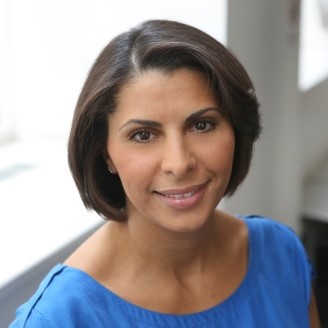
Moderator: Nabila Ramdani
Nabila Ramdani is a French-Algerian award-winning journalist, broadcaster and academic who specialises in French politics, Islamic affairs and the Arab World. She has studied and taught at the universities of Oxford, Paris VII, Michigan (Ann Arbor) and the London School of Economics, where she completed an MPhil on ‘The Rise of the Egyptian Nationalist Movement: The Case of the 1919 Revolution’. She also authored an essay on ‘Women in the 1919 Revolution’ for the Journal of International Women’s Studies and took part in a discussion with Dr Nawal al-Saadawi on ‘Feminism and Arab Women in the Media’ for an Akkadia Press publication for The Media Majlis at Northwestern University in Qatar. Her professional website can be found at: http://www.nabilaramdani.com/
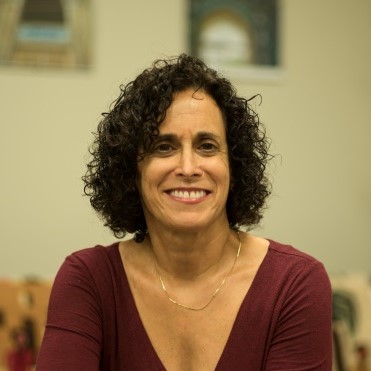
Speaker: Professor Beth Baron
Beth Baron is Distinguished Professor of History at the City College and Graduate Center of the City University of New York and Director of the Middle East and Middle Eastern American Center at the CUNY Graduate Center. From 2009 to 2014, she edited the International Journal of Middle East Studies and from 2015 to 2017 served as President of the Middle East Studies Association of North America. Her most recent book, The Orphan Scandal: Christian Missionaries and the Rise of the Muslim Brotherhood, appeared with Stanford University Press in 2014. Earlier works include Egypt as a Woman: Nationalism, Gender, and Politics (University of California Press, 2005) and The Women’s Awakening in Egypt: Culture, Society, and the Press (Yale University Press, 1994). She co-edited Women in Middle Eastern History: Shifting Boundaries in Sex and Gender (Yale University Press, 1991) with Nikki Keddie and Iran and Beyond: Essays in Middle Eastern History in Honor of Nikki R. Keddie (Mazda, 2000) with Rudi Matthee. She is currently writing a book on the history of medicine, disease, and reproduction in colonial Egypt.
Abstract: A Ward of Their Own: Mothers, Medical Doctors and the Revolution of 1919
The story of the participation of women in the 1919 Revolution, including the mythologising of this role, has been told. Women actively protested against the British occupation, an occupation that had taken its toll on women’s bodies, health and education. Egyptian women led demonstrations and served as symbols of the nation but were pushed from the political stage in the wake of the protests. Yet there is one area where women won a significant victory that has not been recognised sufficiently – inside Qasr al-`Aini Hospital. This talk focuses on the quiet rebellion by Egyptian physicians and surgeons, led by Dr Naguib Mahfouz Pasha, against British administrators and supervisors at Qasr al-`Aini. The ‘father’ of Egyptian obstetrics and gynecology, Mahfouz challenged inequities in a colonial healthcare system that ignored women’s sexual and reproductive health. He pushed for years for more beds for women patients and the founding of the Department of Obstetrics and Gynaecology at Qasr al-`Aini Hospital and School of Medicine. The First World War and Revolution of 1919 provided Egyptian doctors with an opportunity to improve maternal health within the Hospital-School of Medicine complex. As this was the main teaching hospital in Egypt, this had ramifications for women and maternal health throughout Egypt.
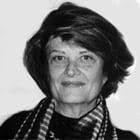
Speaker: Professor Margot Badran
Margot Badran is a historian of the modern Middle East with a focus on women, gender and feminism. She is a senior scholar the Woodrow Wilson International Center for Scholars and a senior fellow at the Alwaleed Center for Muslim-Christian Understanding at Georgetown University. She has written extensively on women, gender and feminism in Egypt from the late 19th century to the present. Among her books are Feminists, Islam, and Nation: Gender and the Making of Modern Egypt and Feminism (translated into Arabic), In Islam: Secular and Religious Convergences (translated into Spanish) and editor and translator of Harem Years: The Memoirs of an Egyptian Feminist; and Feminism in Islam (translated into Dutch and German). Her recent articles include ‘Egypt’s Revolution and the New Feminism’, The Immanent Frame (2011) and 'Women Marching for Revolution in Egypt: A Participatory Journal’, Women Rising: Resistance, Revolution, and Reform in the Arab Spring and Beyond, (Charrad and Stephan, eds. forthcoming New York University Press). She is presently writing a book on feminism and revolution from 1919 to 2011.
Abstract: Women and Gender in the 1919 Revolution and Beyond
It is well known that women participated in Egypt’s 1919 Revolution (ongoing until 1922). Upper-class women went out in demonstrations, organised economic boycotts and acted as liaisons with exiled male nationalist leaders. Middle-class teachers and schoolgirls rallied others using their pens to draft leaflets and spread the word. Women from the popular classes rose up alongside men in spontaneous shows of support. The revolution ended with a unilateral declaration by the British of the provisional independence of Egypt and with the expectation that women whose public political work had been welcomed by Egyptian nationalist men would retreat from the public arena back to their ‘normal’ private space. The 1919 Revolution was a half-revolution for the nation and for women. It revealed the inability of the nation to achieve full independence and the tenacity of allegiance to the patriarchal ordering of state and society, thus preventing the practice of egalitarian citizenship. As the national mainstream reaffirmed its adherence to the patriarchal structure, socially conscious nationalist women organised a feminist movement to pursue their goal of the creation of an egalitarian nation. This paper will analyse the advent of public revolutionary feminism that women actors in the 1919 Revolution spearheaded and the patriarchal obstructions they faced. The paper will also refer to the 2011 Revolution, examining how the unfinished business of uprooting patriarchal injustices lingered on into the 21st century through new forms of feminist activism.
Session 7: The Historiography of the 1919 Revolution

Moderator: Dr Anthony Gorman
Anthony Gorman is Senior Lecturer in Modern Middle Eastern History in the department of Islamic and Middle Eastern Studies at the University of Edinburgh. He has taught at universities in Australia, Egypt and Britain and is the author of Historians, State and Politics in Twentieth Century Egypt: Contesting the Nation (Edinburgh UP, 2003), co-editor of The Press in the Middle East and North Africa, 1850-1950 (Edinburgh UP, 2018) as well as a number of articles on the resident foreign presence in modern Egypt. He continues to work on the anarchist movement in the Eastern Mediterranean before 1914 as well as a history of the prison in the Middle East.

Speaker: Professor Philip Marfleet
Philip Marfleet is Emeritus Professor in Social Sciences at the University of East London, UK. He has published widely on globalisation, migration, and social and political affairs in the modern Middle East. He is editor, with Rabab El Mahdi, of Egypt – The Moment of Change (2009) and author of Egypt – Contested Revolution (2016). Iraq – Conflicts, Migrations, Futures, edited with Keiko Sakai, is published in 2019.
Abstract: From Nationalism to Islamism; Revolution, the Wafd and the Rise of the Muslim Brotherhood
The 1919 Revolution raised expectations of radical change among millions of Egyptians. It brought new political practices in the form of mass public action and engagement with parties focused upon institutions of the nation-state. The outcome of the movement was, however, a disappointment to many activists. The role of the Wafd in suppressing demands for further change, and its accommodation to Britain’s “liberal constitutionalism”, presented opportunities for new currents that aimed to contest the colonial authorities. It was in this context that a new Islamism emerged – an activist current that was to present distinctive models of political practice in religious idiom.
This paper argues that the advance of the Muslim Brotherhood should be understood as part of the history of the revolutionary upheaval - as part of a process of change that continued throughout the colonial period, with consequences for the post-colonial order and for political movements of the 21st century.
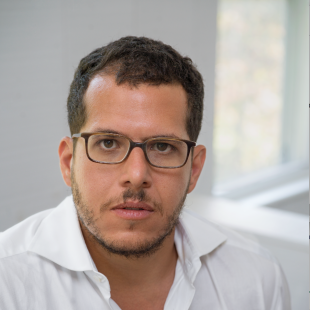
Speaker: Dr Hussein A H Omar
Hussein Omar is a cultural and intellectual historian of the modern Middle East and is Assistant Professor in Global History at University College Dublin. He was previously an AHRC Postdoctoral Fellow at Pembroke College and the History Faculty, as part of the 'First World War and Global Religions’ project. His postdoctoral research examined the anti-colonial insurrectionary movements in Egypt and Iraq between 1919 and 1920. It built on his doctoral thesis, ‘The Rule of Strangers: Empire, Islam and the Invention of “Politics” in Egypt, 1867-- 1914’, which examined political ideas, as well as the very emergence of politics as an autonomous category, in Egypt between 1867 and 1914. A monograph based on his dissertation and postdoctoral work is under contract with Oxford University Press. Other areas of research interest include: how the property endowed to God (waqf) was managed by the colonial and postcolonial state; the emergence of 'minority rights' claims among Egyptian Christians and Muslim sovereignty and kingship, before, after and during the Ottoman defeat in the First World War.
Abstract: Neither Wilson nor Lenin: an Intellectual History of the 1919 Revolution
Like the European revolutions of 1848 and the Arab uprisings of 2011, 1919 was a year of travelling revolutions. War-weary and angry, revolutionaries took to the streets of Egypt in vast numbers in what became one of the largest peasant insurgencies of the twentieth century. While the Great War may have ended officially in 1918, to returning conscripted peasants the real struggle had only just begun. In Egypt, the movement known as the 1919 revolution was only suppressed when tens of thousands of British troops, aided by aircraft cover, killed nearly a thousand unarmed people. Egyptian revolutionary fervour spread to Iraq, and soon the reverberations were felt across the entire Middle East. Yet, while the events of the peripatetic uprising have been chronicled, we have no accounts of the thought that fuelled it, or the ideas it generated. In this paper I refute the notion that these uprisings are best understood as ‘Wilsonian’ or ‘Leninist’ in inspiration, and instead ask: how to write the history of a revolution that produced no identifiable manifestos, ideologues or philosophers? How to write the intellectual history of a ‘leaderless revolution’?
Session 8: Impact on Society and Minorities

Moderator Dr Ahmed El Mokadem
Dr El Mokadem is an international consultant and company chairman. Born in Egypt in 1941 and moved to the United Kingdom in 1963. Dual nationality (Egyptian/British) for 35 years. He was educated in Egypt (BA Econ, 1961 Cairo University) and the United Kingdom (PhD Econ, 1968 Manchester University). Working for more than 35 years in academic consultancy and business worldwide, he has acted as an adviser to many governments on economic policy, oil and defence, including, but not limited to, the US Government and the Bank of England, the UK Treasury and Foreign Office, and many governments of oil-producing countries. He has published and/or supervised many books, articles and research projects on United Kingdom monetary and fiscal policies, North Sea oil, OPEC and the world oil market. One of the founders of the British Egyptian Society, Dr El Mokadem is current its Vice Chairman, a position he has held since the society’s inception. He is a member of many professional and charitable societies. He retired in 2004 and now focusses on writing, lecturing, public services and social and charitable work.
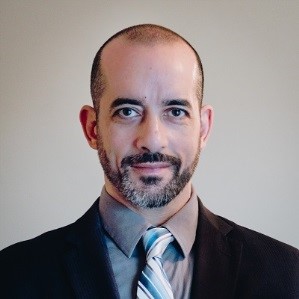
Speaker: Mark Bebawi
Mark Bebawi is a doctoral student at Rice University (Houston, Texas) working under the supervision of Professors Ussama Makdisi and Nathan Citino. He holds degrees from the Universities of Exeter (BA Arabic, Islamic Studies, Politics, 1996) and Oxford (MPhil Modern Middle East Studies, 1998). The working title of his PhD dissertation is The Muslim Brotherhood Reconsidered: Interactions with Secular Nationalism, Military Authoritarianism and Western Imperialism, 1928-1956. Between 2002 and 2018 he hosted and produced a weekly radio show for the Pacifica Network. Guests included leading scholars and analysts such Noam Chomsky, Richard Wolff, Seymour Hersh, Joseph Stiglitz, Daniel Ellsberg, Robert Fisk, Gore Vidal, Howard Zinn, Chalmers Johnson and Abudullahi Ahmad An-Na’im.
Abstract: Copts and the 1919 Revolution: Egyptian Identities and Nationalisms
In the context of the 1919 Revolution, this paper explores tensions in recent scholarship seeking to resolve the strain between the appropriateness of secular and Islamic modes of government and questions the historiography of Coptic identities bedeviled by opposing binary themes. One is the dominant narrative of an Egyptian nationalism that is born of Arabism, effacing Coptic identity and communal tensions and portraying anti-Coptic violence as isolated episodes to be quarantined for the preservation of national unity. Competing with this dominant narrative is an oppressed minority discourse. Copts, along with other indigenous Christians in Muslim-majority states, cannot be condensed into an Islamic tradition and they therefore complicate the notion of another binary opposition between the secular the Islamist. I demonstrate the inaccuracies of both the manufactured image of a shared and united past used bolster political unity in the present and the notion of a singular Coptic identity.
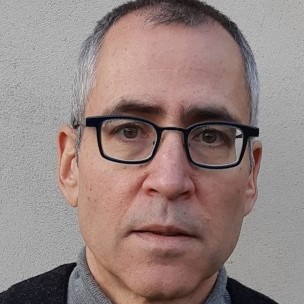
Speaker: Dr Relli Shechter
Relli Shechter is a Senior Lecturer at the Department of Middle East Studies at Ben-Gurion University of the Negev, Israel. He trained as an economic historian and received his PhD from Harvard University. His recent book, The Rise of the Egyptian Middle Class: Socio-Economic Mobility and Public Discontent from Nasser to Sadat, studies why a period of economic growth in Egypt hardly registered as such in Egyptian public discourse, which continuously claimed that the country was experiencing multiple economic crises that became social and cultural crises, as well. His current research project investigates the long-term history of the Egyptian ‘social contract’ — a de facto implicit agreement between the state and its citizens — from 1922 (partial independence) and until the present.
Abstract: The 1923 Egyptian Constitution and the Future of Elementary Education in Egypt
The 1923 Constitution prepared the legal framework for Egypt’s semi-independence from British imperial control under a newly-established liberal monarchy. This Constitution carried a promise for a significant change, in setting the ground for a nascent national system of mass elementary education in Egypt. Dr Shechter studies the deliberations of the Constitutional Commission that first drafted and later debated the various articles of the Constitution, and the historical context in which these deliberations were taking place. I argue that the Constitutional Commission followed a broad consensus, both in Egypt and abroad, over the necessity of establishing a national system of mass education. However, the constitutionalists adopted a maximalist approach to the reform in mass education that hardly matched Egyptian socio-economic and educational realities of the time. Setting high expectations, the Constitution would simultaneously enhance national education and trigger the future setbacks that would beset its implementation.
Session 9: The Arts

Moderator: Peter Mackenzie Smith
Peter Mackenzie Smith is a trustee of the British Egyptian Society and was involved in the production of the 2006 forum ’50 years since Suez: from Conflict to Collaboration’ and in the 2012 British Egyptian conference ‘Education the Best Investment’.
He was twice posted to Egypt during his career with the British Council from 1969 to 1997, after which he was for six years Director of Education for GEC and for Marconi, implementing partnership programmes with universities and schools in the UK, the US, Europe, Africa, and the Middle East. From 2001 to 2003 he was UK Trade and Investment’s first trade adviser for education and training. He has carried out education consultancy assignments in Nigeria, South Africa, Egypt, China, and India. He is chairman of Getenergy Ltd, a company that supports education and training for the oil and gas industry internationally.
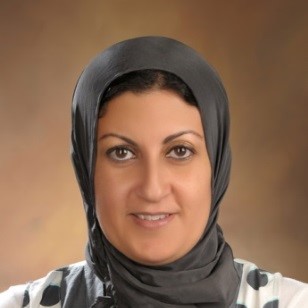
Speaker: Dr Omneya El Naggar
Omneya El Naggar works at the Department of Political Science, the American University in Cairo. She is also an independent writer/journalist. Her research interests include comparative politics of the Middle East, political Islam, democratic transition and the politics of gender. She is currently working on an edited book on political organisation in the era of ideological fatigue: a post Arab Spring public space.
Abstract: Long Live Degenerate Art! Art as a Liberator for Egyptian Surrealists
This paper will explore the proposition of the ‘Art and Freedom Group’, founded in 1938 by George Hunein and Anwar Kamel. It will shed light on several of its members and introduce their work (in the domains of art, writing, art criticism etc.), by using an analytical approach of what Jean-François Lyotard described as 'petits récits' or the ‘individual little/ micronarratives’ that can help us re-read a certain historical moment, which, in this instance, is the period between 1939 and 1952. The group had the double motives of liberating both the country and its culture. They used Trotskian and surrealist views to propagate their vision for a free society able to revolutionise its culture [see Trotsky in Kurzweil & Philipps, 1981] by transcending the obstacles presented by both a static heritage and by Western colonialism. They proposed a revolution to free the country and a surrealist transcendence to free its culture.
Session 10: The Revolution and its Influence on the Next Hundred Years
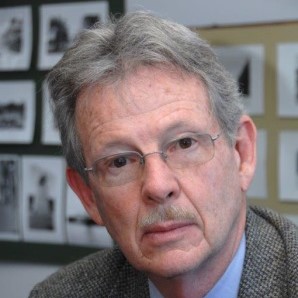
Moderator: Professor Robert Springborg
Robert Springborg is a non-resident Research Fellow of the Italian Institute of International Affairs, Rome. Formerly he was Professor of National Security Affairs at the Naval Postgraduate School, Monterey, and Program Manager for the Middle East for the Center for Civil-Military Relations; the holder of the MBI Al Jaber Chair in Middle East Studies at SOAS London University, where he also served as Director of the London Middle East Institute; the Director of the American Research Center in Egypt; University Professor of Middle East Politics at Macquarie University in Sydney Australia and assistant professor of political science at the University of Pennsylvania. He has also taught at the University of California, Berkeley, the College of Europe, the Paris School of International Affairs of Sciences Po and the University of Sydney. In 2016 he was Kuwait Foundation Visiting Scholar, Middle East Initiative, Kennedy School, Harvard University.

Panellist: Dr May Darwich (see above)

Panellist: Dr Anthony Gorman (see above)
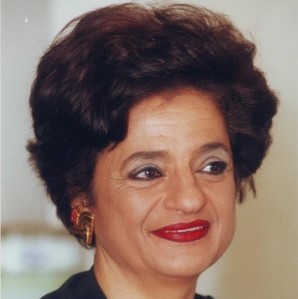
Panellist: Mona Makram Ebeid
Ms Makram-Ebeid, a graduate from Harvard University, has been a Lecturer in Political Science at the American University in Cairo since 1990. From 2012 to 2105 she served as a Senator, Advisor to the Supreme Council of the Armed Forces (2012) and Member of the National Council on Human Rights (2012-2013).
She was a Member of Parliament from 1990 to 1995 and an Advisor to the World Bank for the MENA region. She served as an expert on the UN Committee for Policy Development between 2000 and 2003. In 1998 she became Officier de la Légion D’Honneur (France). She has been recently appointed Political Advisor to the President of the Wafd Party. She is a prolific writer in English, French and Arabic.

Panellist: Nabila Ramdani (see above)
